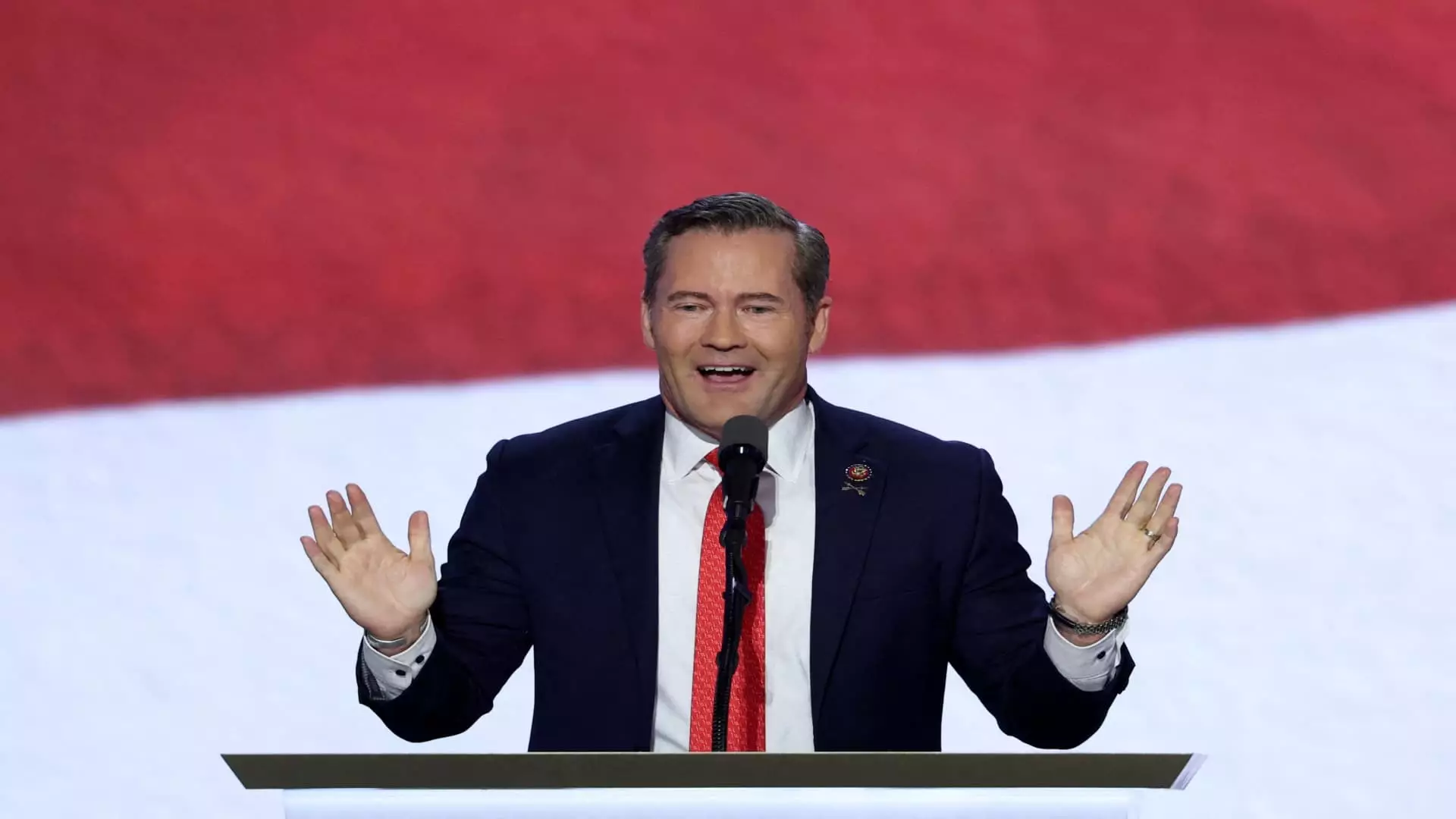President-Elect Donald Trump’s recent decision to appoint Rep. Mike Waltz as his national security adviser signifies a strategic shift in how the upcoming administration intends to approach global security challenges. As a seasoned Green Beret veteran with extensive experience in combat zones such as Afghanistan, the Middle East, and Africa, Waltz brings a wealth of firsthand knowledge to the role, which will likely shape U.S. foreign policy in critical areas.
Waltz’s background is particularly noteworthy. He has not only served in the military but is also well-versed in legislative matters, holding a seat in the House of Representatives since 2019. His participation in the Armed Services, Foreign Affairs, and Intelligence committees equips him with the understanding necessary to navigate complex national security issues. The combination of military experience and governmental insight positions Waltz as a pivotal player in addressing the multifaceted challenges facing the U.S. on the global stage.
One of the key components of Waltz’s national security strategy appears to be a hawkish stance toward China. As a member of the House’s China Task Force, he has been vocal about the potential threats posed by the Chinese regime, advocating for a proactive approach to ensure U.S. readiness in the event of conflict in the Asia-Pacific region. This viewpoint aligns with a growing sentiment among U.S. lawmakers who are increasingly wary of China’s expanding influence.
Moreover, Waltz has also expressed skepticism regarding U.S. involvement in foreign conflicts, particularly concerning aid to Ukraine amid its ongoing war with Russia. In an interview with NPR, he suggested that the U.S. holds substantial leverage in the situation and could push Russian President Vladimir Putin toward a diplomatic resolution. This perspective indicates a calculated approach, favoring direct negotiations over extended military support, which may differ from more interventionist viewpoints within contemporary U.S. foreign policy.
The role of national security adviser does not necessitate Senate confirmation, enabling Waltz to step into this critical position without the hurdles usually accompanying high-level appointments. This provides Trump with the agility to implement his policy agenda swiftly, particularly in areas of national security where immediate action may be necessary.
While Waltz’s appointment positions him as the second House Republican selected for a key role in the new administration—joining Rep. Elise Stefanik, who has been appointed as U.S. ambassador to the United Nations—there are nuanced considerations to take into account. Waltz’s military background and his assertive views on foreign policy may appeal to a base that favors strong leadership, yet they also risk escalating tensions with adversaries if not handled diplomatically.
As President-Elect Trump prepares to take office, the selection of Mike Waltz as his national security adviser highlights a determined approach toward addressing U.S. foreign policy challenges. With an emphasis on strength and readiness, Waltz’s involvement will likely influence how the U.S. interacts with both allies and adversaries alike in the coming years. As the geopolitical landscape continues to evolve, Waltz’s presence in such a pivotal role will undoubtedly leave a lasting impact on American security strategies.

Leave a Reply